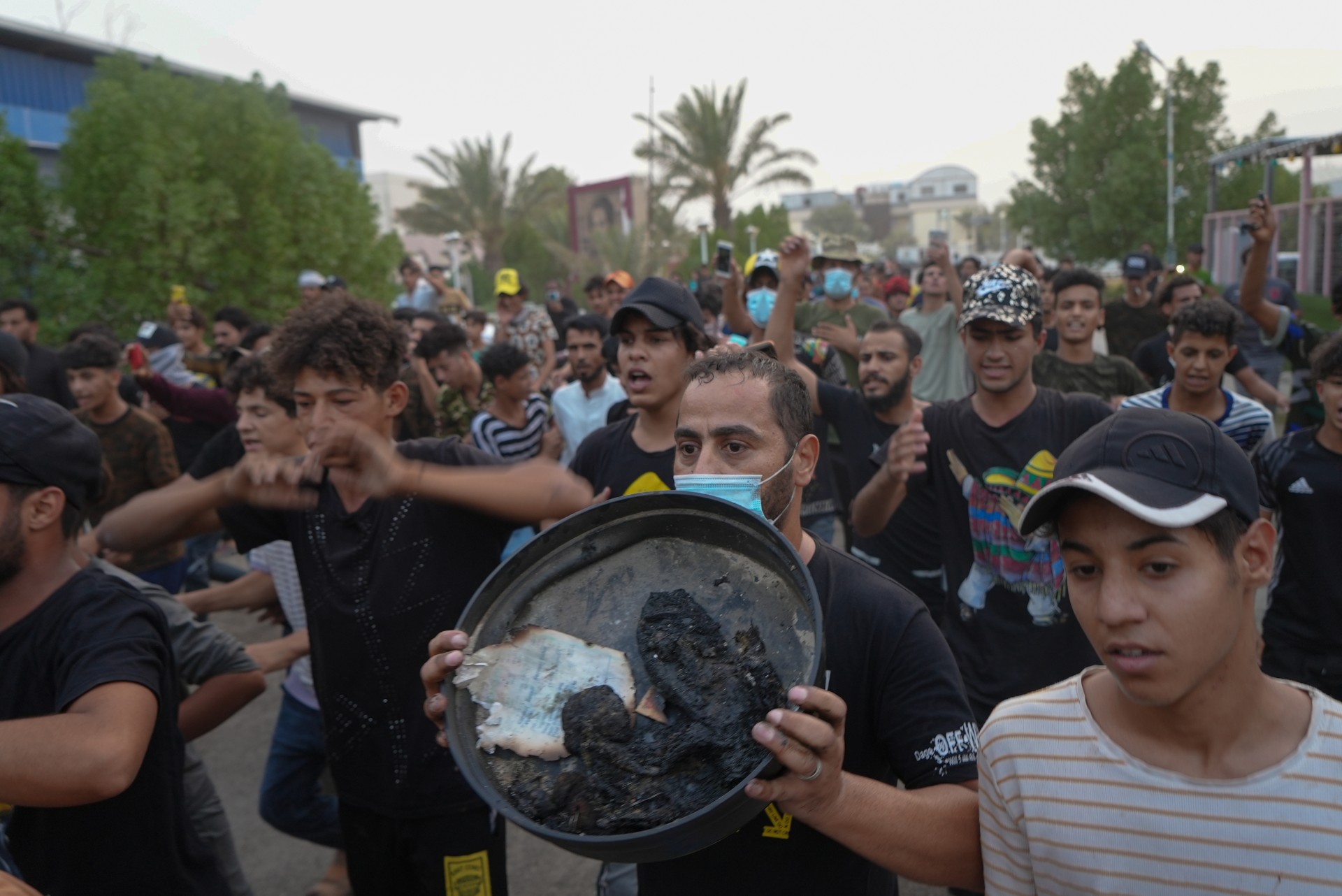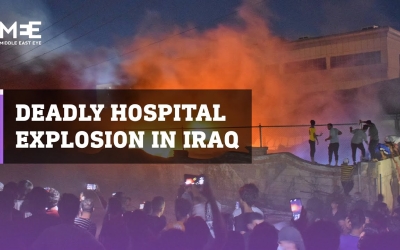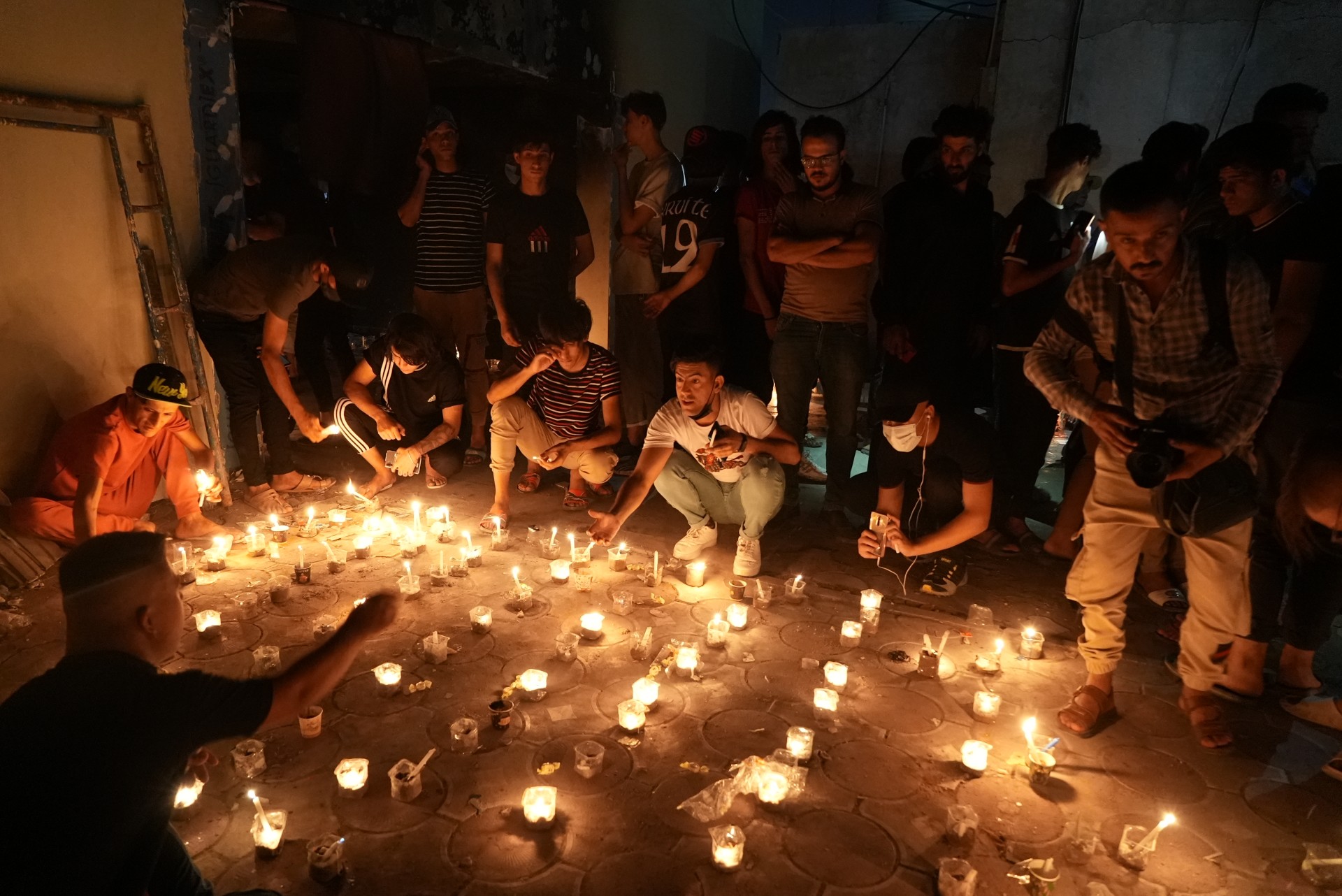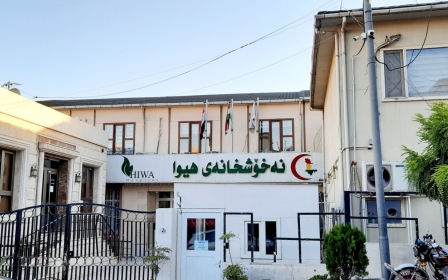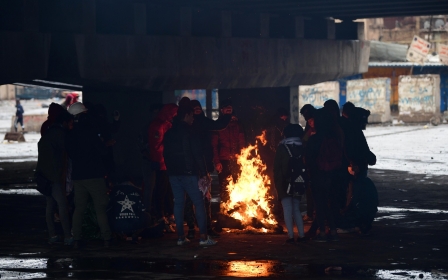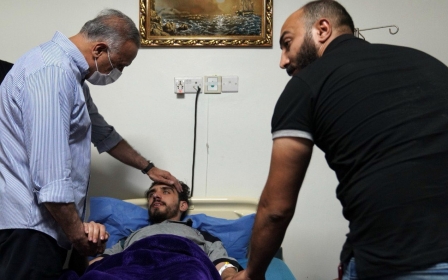Iraq: Nasiriyah reeling after deadly Covid hospital fire
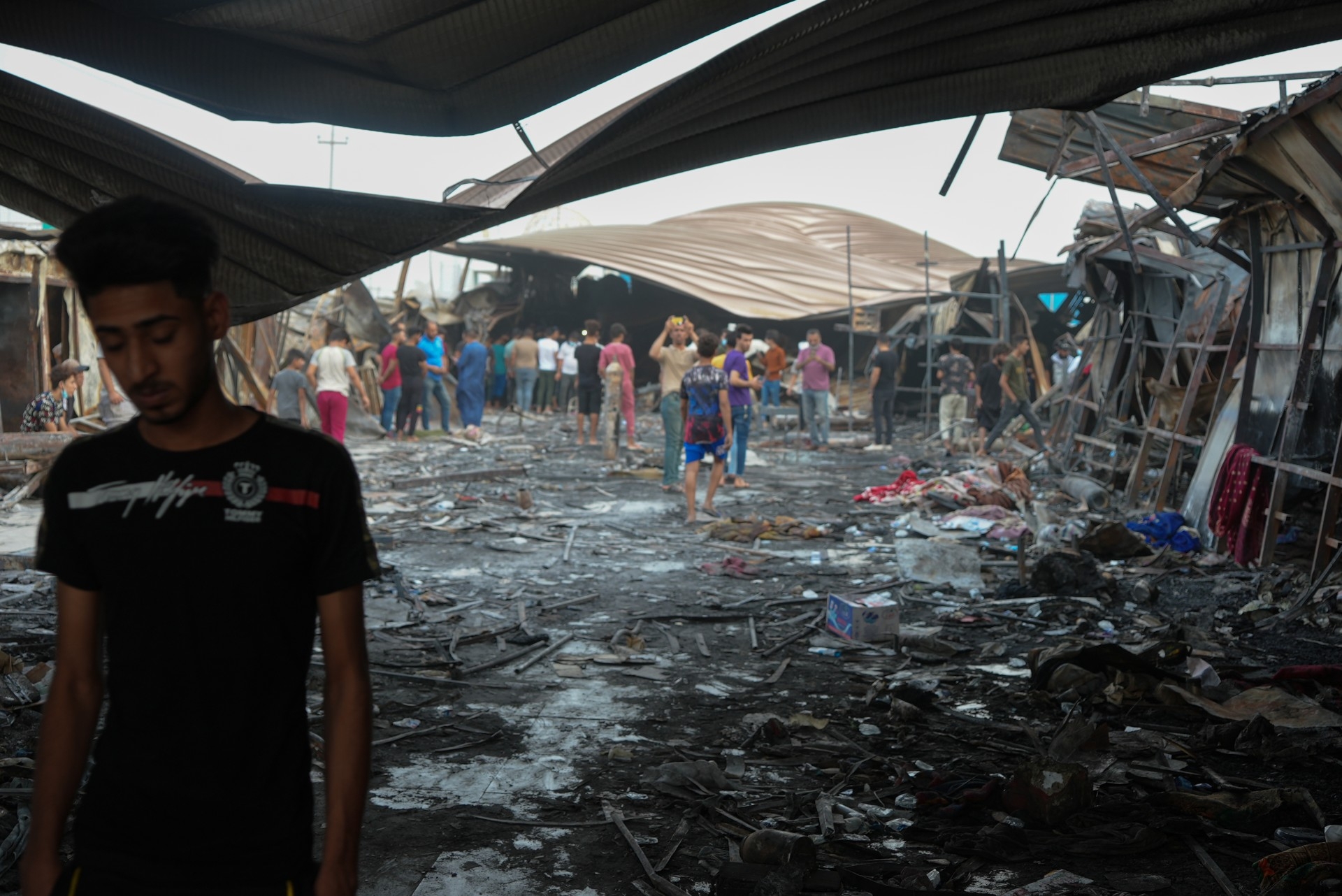
Around 8pm on Monday, Khadim al-Shawi saw the night sky light up with flames. Al-Hussein hospital in southern Iraq's Nasiriyah was alight, and its Covid-19 patient wing was burning to the ground.
“We rushed towards it but could not enter inside. The fire continued for more than two hours, and the civil defence vehicles arrived late, when the fire was intense,” he told Middle East Eye, picking through the smoking ruin in search of victims.
“Unfortunately, there were no fire trucks nearby.”
At least 92 people died in the blaze. The majority were Covid patients, but those caring for them, including doctors, nurses and relatives, were also lost. Some people who rushed to save those trapped inside are also reportedly dead.
Officials say exploding gas canisters caused the fire. But medics, speaking on condition of anonymity, told MEE that an electrical malfunction sparked the disaster.
New MEE newsletter: Jerusalem Dispatch
Sign up to get the latest insights and analysis on Israel-Palestine, alongside Turkey Unpacked and other MEE newsletters
Two days on from the fire, and the clean-up and search-and-rescue operation are predominantly volunteer-led. The site remains a mess.
“We have been asking Nasiriyah’s governor, the head of the municipality, to equip us with trucks to remove the rubble. But they have given us deaf ears, so we are left alone and spend all our energy on finding the missing,” Shawi said.
“Due to the huge destruction, we are struggling to remove the bodies.”
Despite having one of the world’s largest oil reserves, Iraq’s infrastructure is in tatters. Since the US invasion 18 years ago, the country has suffered from a series of conflicts, endemic corruption and foreign interference.
That has left its healthcare system threadbare, with hospitals already struggling to deal with the Covid-19 pandemic, which has killed 17,592 people and infected more than 1.4 million according to official data.
The al-Hussein hospital fire isn’t even the first such disaster to strike Iraq in recent months. In April, at least 82 people were killed and 110 people injured after a similar accident at a Covid ward in Baghdad.
Ali al-Bayati, of the Iraqi High Commission for Human Rights, was pessimistic that this latest fire would prompt change.
“I don't think any important step will be done in achieving real change because what happened is a result of the total neglect of a sector as important as health," he told MEE. "There is a history of corruption going back to 2003 in which many parties are involved in the absence of a health system and the mismanagement of institutions.
“Political intervention is needed in every single small detail of these institutions: poor infrastructure and absence of health awareness, as well as trust lost day by day.”
Shawi bemoaned the total failure to build adequate healthcare infrastructure, saying "Iraqis are dying every day due to epidemic corruption”.
“What happened taught us a lesson that we should not give our votes to old faces who were behind our sufferings. I know they will pretend they represent the people, but we never chose them,” he said, before beginning chants of “no, no to parties”, “yes, yes to Iraq” and “death to militias”.
Anger at the government
An official investigation into the incident has been opened, with Prime Minister Mustafa al-Kadhimi promising results within a week. He also said that Nasiriyah’s health and civil defence officials would be suspended and arrested.
“We stand in front of our people and the families of the victims and say that we will hold the negligent to account with full force,” Kadhimi said.
But that has done little to dampen the anger felt in this southern Iraqi city, and across the country. Angry protests have broken out outside the hospital. One man carried the charred remains of one victim as he marched through the city.
'I am horrified that I lost a friend who was so close to me. I feel there is no life. Every moment I die and come back to life'
- Ahmed Ali, 20
“It is a shame that we are in 2021 and the government builds an isolation ward for coronavirus patients from flammable materials,” said Luay al-Dabbi, a Nasiriyah resident.
“Today, we are not asking the government to offer condolences, but rather to leave office. Stop killing Iraqis. Every day Nasiriyah goes through a massacre worse than before.”
Adnan Darjal, the minister of youth and sports, has been appointed head of the investigative committee, a move that has caused bafflement among many angry Nasiriyah residents.
“I would like to ask the government: are we playing football? Is this why you are sending the minister of youth and sports? Is there any link between this massacre and football?” Shawi said.
“I think the government is trying to tell us they are playing with the people just like it is a football game. This is a clear message that they do not value the lives of Iraqis.”
On Wednesday evening, hundreds of Iraqis gathered at the charred remains of the Covid ward, lighting candles for the dead.
While lighting candles for a friend who died in the fire, Ahmed Ali, 20, said: “I am horrified that I lost a friend who was so close to me. I feel there is no life. Every moment I die and come back to life.
“I came here to the place where my friend died to light a candle for his soul. I cannot believe he is gone. I wish I could die with him and not be still alive,” he added.
“What have we done to live all our life with suffering?”
Middle East Eye delivers independent and unrivalled coverage and analysis of the Middle East, North Africa and beyond. To learn more about republishing this content and the associated fees, please fill out this form. More about MEE can be found here.


